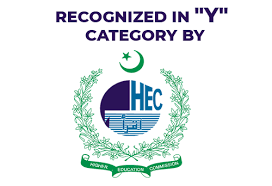Phenomenology of Counseling Psychologists: Services and Expectations Involved in Treating Substance Abuse Patients in Karachi
Abstract
 Abstract Views: 295
Abstract Views: 295
Substance abuse can produce/incur significant costs for the society. Around 6.9 million adults were estimated to be addicted to illicit drugs in 2013. Adolescents constitute the most vulnerable segment of the population in this regard between the ages of 16-35. Although the rate/number of drug addicts is rising substantially, an adequate supply of qualified counseling psychologists and mental health professionals for their treatment is still unavailable. Therefore, this research was undertaken to explore some of these crucial aspects from the counselors’ perspective. This mix-method study focused on the effectiveness of these clinical professionals in treating substance abuse patients in Karachi. The qualitative research design used for this study was based on phenomenological interviews. Ten semi-structured interviews were conducted with professional counselors and clinical counseling psychologists currently working with substance abuse patients. Data was categorized into different themes and significant aspects of the phenomenological experiences of participants were processed using thematic analysis. Data on success rate, dropout rate and relapse rate was collected from clinical institutes to measure the positive outcomes of the treatment of drug addicts. The results showed that substantial opportunities are/support was provided by counseling psychologists and their clinical institutes to ensure proper treatment for substance abuse patients. Major aspects of the treatment process such as group and family counseling, relapse and culture were catered by them. However, major changes must be brought in order to cater for individual needs.
Downloads
References
Anjum, G., & Godil, A., Sabater, A. (2019). Fear of achievement among young women in urban Pakistan: A phenomenological analysis of fear of achievement (FOA). Cogent Social Sciences, 5(1), 1–18. doi: 10.1080/23311886.2019.1666620
Anjum, G., Kamal, A., & Bilwani, S. (2019). Antecedents of gender gap in workforce participation: A phenomenology of psychologists and medical doctors in urban Pakistan. Journal of Human Behavior in the Social Environment, 29(2), 282–299. doi: 10.1080/10911359.2018.1536576
Basu, D., Ghosh, A., Sarkar, S., Patra, B. N., Subodh, B. N., & Mattoo, S. K. (2017). Initial treatment dropout in patients with substance use disorders attending a tertiary care de-addiction centre in north India. The Indian Journal of Medical Research, 146(Supplement), S77–S84. https://doi.org/10.4103/ijmr.IJMR_1309_15
Creswell, J. W. (2007). Qualitative inquiry & research design: Choosing among five approaches (2nd ed.). Thousand Oaks, CA: Sage.
Fletcher, A. (2013). Inside rehab: The surprising truth about drug addiction and how to get help that works. New York: Penguin Group.
Gilani, A., Gilani, U., Kasi, P., & Khan, M. (2005). Psychiatric health laws in Pakistan: From lunacy to mental health. PLOS Medicine, 2 (11), 1–5. https://doi.org/10.1371/journal.pmed.0020317
Glasby, J. (2005). On the inside: A narrative review of mental health inpatient services. British Journal of Social Work, 35(6), 863–879.
Irfan, M. (2010). Implementation of mental health policy in Pakistan: A dream in search of reality. Journal of Postgraduate Medical Institute, 24(2), 1–2.
Jacobson, N., & Greenley, D. (2001). What is recovery? A conceptual model and explication. Psychiatric Services, 52(4), 482–485.
Khalid, M., & Anjum, G. (2019). Use of remedial teaching approaches for dyslexic students: Experiences of remedial teachers working in urban Pakistan. Cogent Psychology, 6(1), 1–18. doi: 10.1080/23311908.2019.1580181
Khalily, M. (2010). Developing a coordinated response to drug abuse in Pakistan. Journal of Inter-Professional Care, 24(2), 168–172.
Lamahieu, J. L. (2016). World drug report. New York. United Nations Office of Drugs and Crime. Retrieved February 20, 2018, from https://www.unodc.org/documents/wdr2015/World_Drug_Report_2015.pdf
Masood, S., & Sahar, N. (2014). An exploratory research on the role of family in youth's drug addiction. Health Psychology and Behavioral Medicine, 2 (1), 820–832.
McLellan, A., Woody, G., Metzger, D., McKay, J., Durell, J.,… O'Brien, C. (1996). Evaluating the effectiveness of addiction treatments: Reasonable expectations, appropriate comparisons. The Milbank Quarterly, 74(1), 51–55.
Mohamed, M. N., Che Din, S., & Ishaq, I. (1998 ). Treatment of drug dependents in the traditional setting: The case of Inabah. Pakistan Journal of Psychological Research, 13(3), 75–87. (Reference is not in text)
Nordheim, K., Walderhaug, E., Alstadius, S., Kern-Godal, A., Arnevik, E., & Duckert, F. (2018). Young adults' reasons for dropout from residential substance use disorder treatment. Qualitative Social Work: Research & Practice, 17(1), 24–40. doi: 10.1177/1473325016654559
United Nations Office of Drugs and Crime (UNODC). (2013). Drug survey of Pakistan. Islamabad, Pakistan: Author. Retrieved June 04, 2020, from https://www.unodc.org/documents/pakistan/Survey_Report_Final_2013.pdf
Wesson, D. R., Havassy, B. E., & Smith, D. E. (2001). Theories of relapse and recovery and their implications on drug abuse. Relapse and Recovery in Drug Abuse, 72(1), 14–28.
White, W. (2007). Addiction recovery: Its definition and conceptual boundaries. Journal of Substance Abuse Treatment, 33(3), 229–241.








